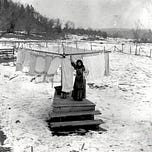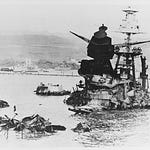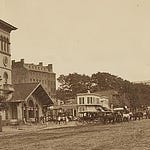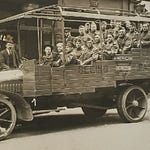It is April 1861.
America’s democracy is in great peril.
Seven states have seceded from the Union and formed a new government.
Four more will soon join.
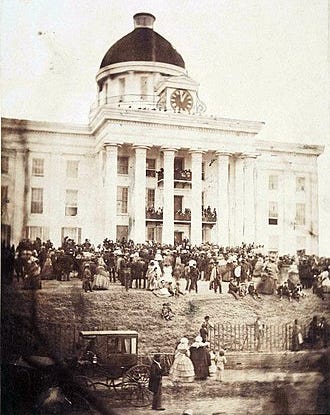
A West Point graduate, who served the nation with distinction in the Mexican-American War and then served in the Senate and Cabinet, has been inaugurated as its provisional president.
In weeks, he will send emissaries to London seeking diplomatic recognition for the Confederate States of America from Britain, the primary purchaser of its cotton crop.
In a few days, high-ranking officers of the US Army — Joe Johnston and Robert Lee among them — will resign their military commissions to take charge of the Confederate military.
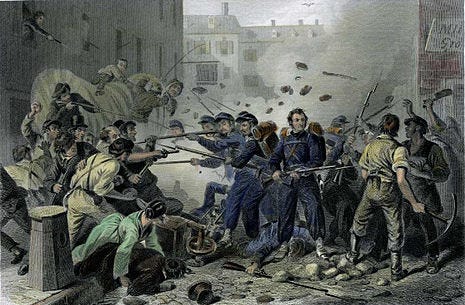
The nation’s capital, Washington, D.C., is in danger of being cut off from those states which remain in the Union.
Maryland, a slave-holding state just to the north of Washington, is restive, with loud voices there calling for secession.
And Virginia, a slave-holding state on the other side of the Potomac River, will soon secede.
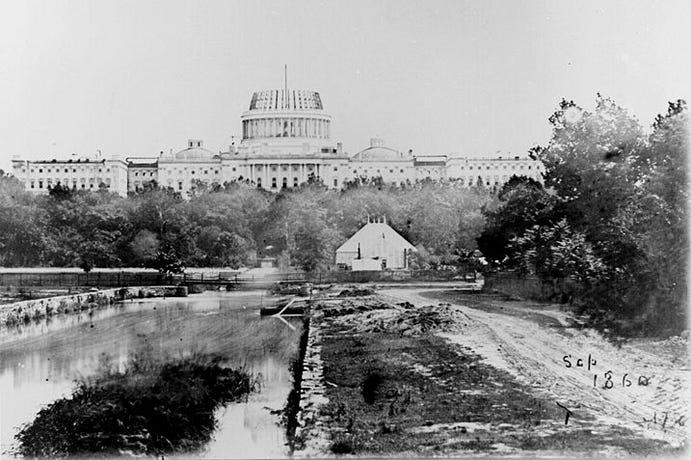
A Confederate capture of the nation’s capital — so vulnerable, with just a small contingent of federal troops there to defend it — would end the war before it had really started and would guarantee the Confederacy international diplomatic recognition.
The flashpoint comes on April 11, with the Confederate demand for the surrender of Fort Sumter, a federal arsenal in Charleston’s harbor.
The fate of the nation rests in Abe Lincoln’s hands, who had been the US President for thirty-eight days.
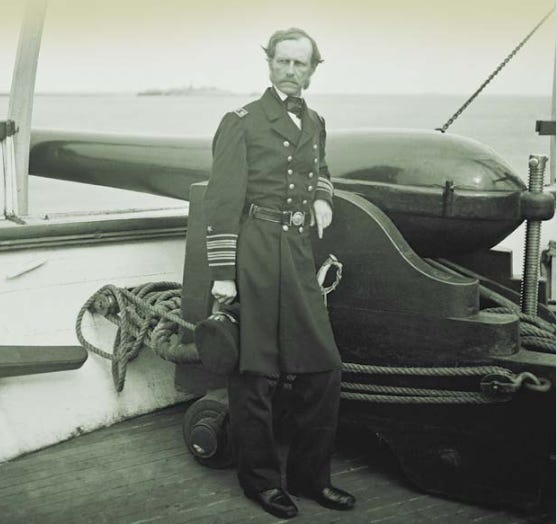
John Dahlgren, Lincoln’s friend and the commander of the Washington Navy Yard in southeast Washington, describes these desperate times:1
“The North appeared undecided upon any particular course.
Many seemed willing to let the possession of Fort [Sumter] go by default.
But there was one honest and true heart who knew that the lawful authority of the US should not be impugned with his consent,
and that he, as President, would uphold it to the last.
Virginia demanded to know of the President what he intended to do.
And again attention was drawn to the furtive designs of the disunionist upon the Capital.
[Congressional] leaders of daring and unscrupulous character were noticed about the precincts of Washington entering and leaving at unusual hours.
Washington was again excited by the evident signs of approaching trouble.
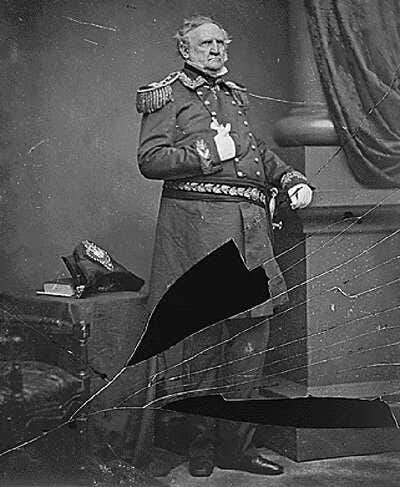
General Scott of the Army continued fully alive to the critical condition of things and all the approaches of the city were [placed under armed guard].
The Patent Office and Treasury were garrisoned by regulars as well as possible at their lower entrances.
Still it was manifest to the least observant that the whole force which the Government could muster in Washington served for little more than a police.
It was not at all equal to an effective defense.
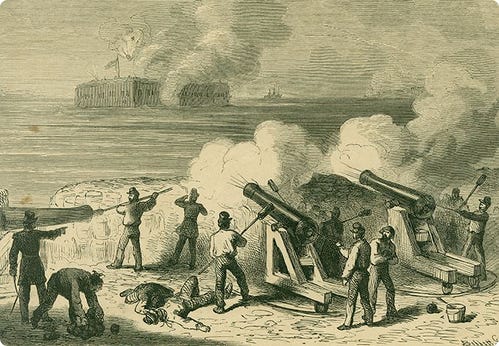
Then, at last the storm broke.
Sumter’s [surrender] was demanded on the 11th and [its commander, Major Robert] Anderson refused.
And on the next day South Carolina struck the blow which she and the South have since then so bitterly repented [by bombarding the Fort].
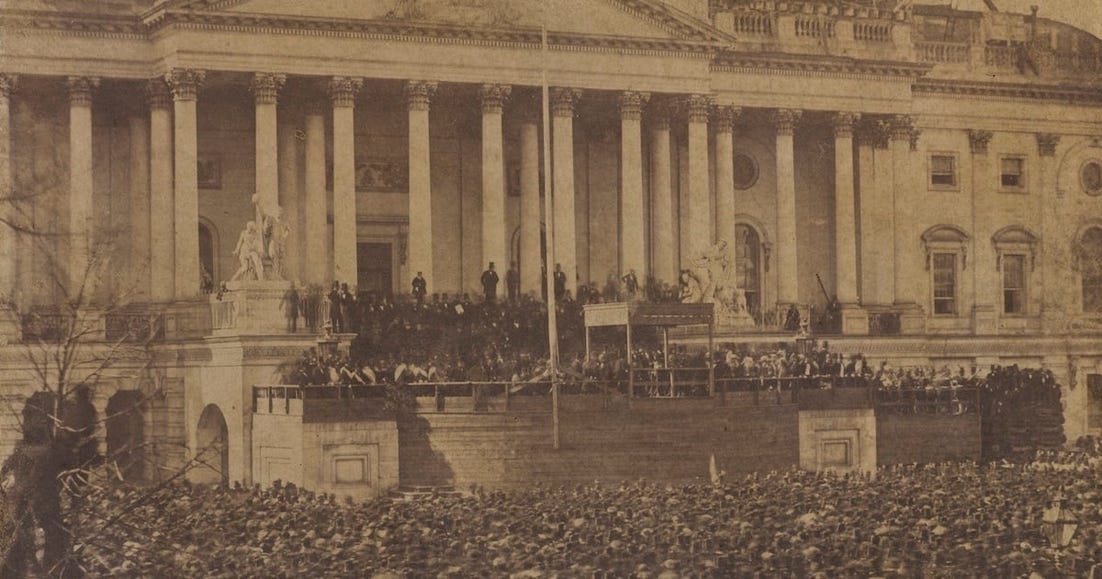
But the President hesitated not.
His Proclamation that called out for 75,000 men drew the line at once between loyal and disloyal men.
[The response to Lincoln’s call was overwhelming.]
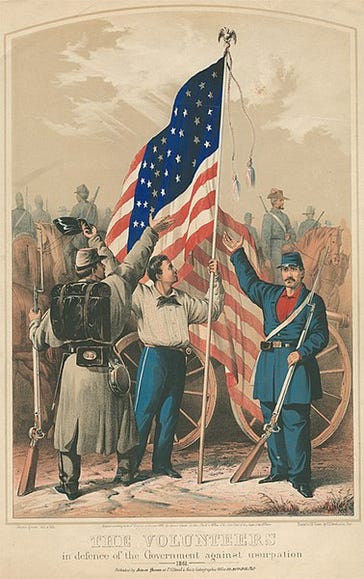
Had Virginia remained true [to the Union], there would have been little trouble or bloodshed then in compelling the states that had seceded to return.
And yet, [had Virginia done so] the great result [of the war] would never have been gained which now ensures tranquility.
Slavery would have continued to be the reproach and the danger of the Republic.”
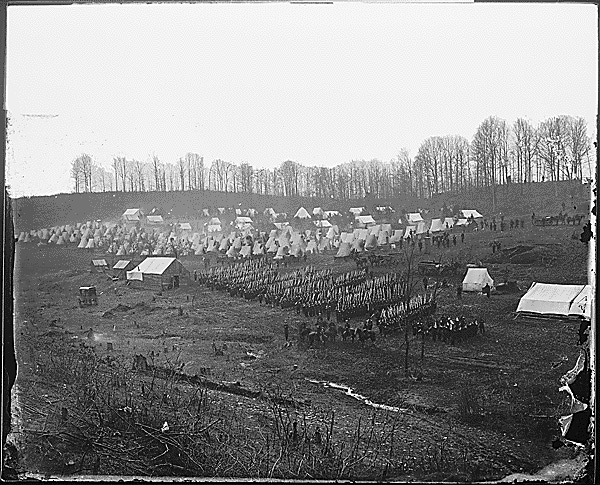
******************************
I’ll see you tomorrow.
— Brenda
Banner image: Confederate Gen. Joe Johnston surrenders to Union Gen. Sherman, April 26, 1865.


